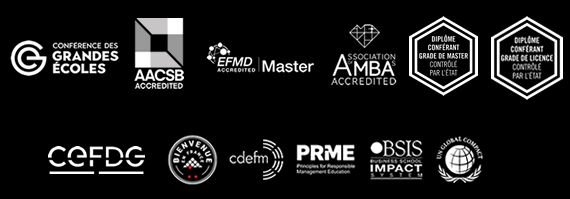In this article, published by FNEGE Médias, Pascale Bueno Merino, professor researcher and Associate Dean for Research at EMLV, explores the contribution of psychological entrepreneurial support based on same-gender group mentoring to strengthening female entrepreneurial intention in the specific context of a women-only incubator.
More precisely, this research, in collaboration with Marie-Hélène Duchemin, professor assistant at EM Normandie, aims to determine how psychological entrepreneurial support is implemented in the incubation process to overcome these specific challenges and the mechanisms for strengthening female entrepreneurial intention analyzed at both intrapersonal and interpersonal levels.
The researchers discuss the implications of their findings on related research into business incubators and the design of mentoring programs adapted to the needs of women entrepreneurs.
The influence of women-specific training programs
According to the literature on female entrepreneurship, women entrepreneurs face specific challenges that influence their entrepreneurial intention, such as a lack of self-confidence caused by gender stereotypes and conflict between family life and their entrepreneurial careers.
Little attention has been paid to the influence of women-specific training programs in the academic literature on female entrepreneurship. Our research explores the contribution of psychological entrepreneurial support to strengthening female entrepreneurial intention in the context of a woman-only incubator.
We aim to examine the benefits of gender similarity and group mentoring in incubating women entrepreneurs. Indeed, women entrepreneurs face specific challenges influencing their entrepreneurial intention, such as a lack of self-confidence caused by gender stereotypes and conflict between family life and entrepreneurial careers.
More precisely, our research aims to determine how psychological entrepreneurial support is implemented in a woman-only incubator to overcome specific challenges.
Reinforcing Female Entrepreneurial intention
Thanks to qualitative methodology, our findings suggest that psychological entrepreneurial support delivered by group mentoring between women at the beginning of the incubation process reinforces female entrepreneurial intention.
In other words, it positively impacts female entrepreneurial intention through an external approval mechanism and the construction of gender stereotypes about female entrepreneurship.The effects of some gender group mentoring on female entrepreneurial intention can be summed up in three points:
Firstly, the group monitoring set up by the women-only incubator and led by a female role model affects the construction of gender stereotypes about female entrepreneurship. Thanks to the mirror effect, mutual observation and social comparison stimulate the desire to become an entrepreneur and improve self-confidence.
Secondly, providing a safe environment for self-exploration, reflection, self-expression, and psychosocial support based on gender similarity and social interaction contributes to the personal development of the role modelling provided by group mentoring between Women. It facilitates the identity work of women entrepreneurs searching for entrepreneurial legitimacy.
Thirdly, in case of reluctance from the spouse or, more generally, from the family, external approval of the woman’s entrepreneurial project may be obtained within the Women’s Group instead. Indeed, psychological entrepreneurial support provided by the women’s group stimulates the decision to start a business through commitment in front of peers; it facilitates a move to action.
The traditional definition of a business incubator
At the theoretical level, our research allows us to broaden the traditional definition of a business incubator, which has been centred on developing the business concept or connecting women entrepreneurs with other stakeholders. We propose to extend this definition by adding a psychological component centred on the personality of the female entrepreneur, her well-being, and her self-confidence.
More importantly, our research findings have several implications for business incubators and practitioners who design entrepreneurial support programs and notably resort to mentoring. Our study demonstrates the need to consider the psychological obstacles some women entrepreneurs may experience at the start of their entrepreneurial adventure.
A gendered and Collective approach to entrepreneurial support efficiently removes obstacles linked to family pressure or excessive sensitivity to gender stereotypes about female entrepreneurship. The importance of role modeling for women entrepreneurs also supports a gender approach to the incubation process through group mentoring.





















